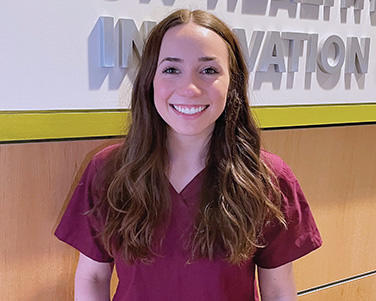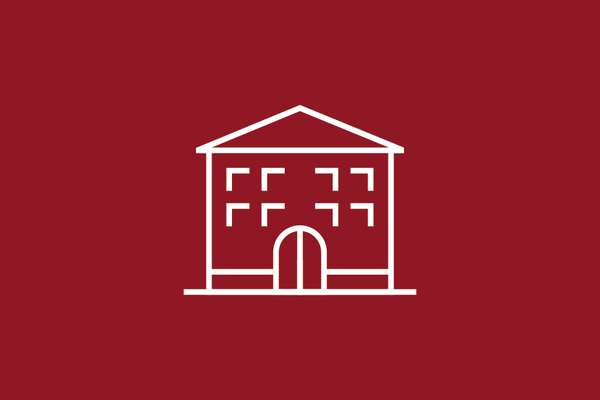Relationships and healing
A collaboration with Presbyterian Homes and Services is showing students the significance of therapeutic communication and relationship building for effective nursing care.
April 7, 2021
Meleah Maynard
Second-year nursing student Jenna Damico was nervous when she found herself and another classmate paired with an older adult mentor as part of her Nurse as Professional class last semester.

While one of the goals of the class is to help students further develop their communication skills early in their education, this was the first time they’d been given an opportunity to practice therapeutic interaction in a real-life situation.
Looking back, Damico says the experience not only improved her listening skills, it also changed her perceptions about working with older adults. “You can think you’re a good communicator, but you don’t really know until you have some practice,” she says. “I liked that this was a low-stress way to build a relationship with someone, and it helped me feel much more open to working with older adults in the future.”
Clinical Associate Professor Laura Kirk, PhD, RN, who teaches the class, served as lead faculty on this new venture, which paired 140 nursing students with volunteer mentors (many of whom were retired nurses) living at several different Presbyterian Homes and Services locations. Because face-to-face interaction wasn’t possible due to COVID-19, students and mentors communicated by phone, Zoom or FaceTime.
Loosely guided by a questionnaire developed by faculty and Presbyterian Homes staff, students talked with their mentors a minimum of six times over the 15-week course. They also kept reflective journals and summarized their interactions, so they could write their mentors’ stories, which were shared with the mentors at the end of the semester along with a thank you note.
“We talk with students a lot about how important it is to be present with patients because real healing occurs within relationships,” Kirk explains. “This partnership with Presbyterian Homes really challenged students’ anxiety about talking to somebody they don’t know, as well as stereotypes they may have had about older people. Many of them said things like, ‘I had no idea older people traveled so much.’ Or ‘she is busier than I am and still has a lot of hopes and dreams.’”
“The ‘magic’ really happens when both the nurse and the person receiving care are enriched by interaction, and intergenerational learning and sharing can be very powerful and healing.”
– Laura Kirk, clinical associate professor
And the partnership wasn’t just helpful to students. Mentors like Grammy McNear, who served as a registered nurse for 42 years before retiring, figured the student she was paired with would ask her specific questions about how she’d handled certain situations as a nurse. Instead, she asked McNear about her life.
“She wanted to know what I was like when I was a little kid, and how I felt about experiences I’d had as a nurse—like the time I delivered two babies while on my way to lunch,” she recalls, laughing. “She really liked those stories, and I enjoyed telling them. Her enthusiasm made me feel young again, and she wrote me the most gracious thank you note, saying that I am her idol and she’s going to continue to do as well as she can to continue what I did.”
Kirk is hopeful that the collaboration with Presbyterian Homes will grow over time and, perhaps, face-to-face visits will eventually be safe and possible. “The ‘magic’ really happens when both the nurse and the person receiving care are enriched by interaction, and intergenerational learning and sharing can be very powerful and healing,” she says.


